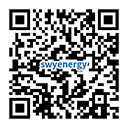China Tower has stopped purchasing lead-acid batteries and changed to purchasing lithium batteries.
According to the website of the Ministry of Industry and Information Technology, in order to solve the recycling problem of power batteries for new energy vehicles, the Ministry of Industry and Information Technology, together with relevant departments, organized China Tieta Co., Ltd. (hereinafter referred to as "Tieta Company") to carry out step-by-step utilization of power batteries in 2018, to play the role of the main channel for recycling power batteries, and to strengthen innovation in business model construction, research and development of key technologies, research on standards and norms, and information platform construction. As a large state-owned comprehensive service enterprise for communication infrastructure, Tieta Company has 1.9 million base stations, which has a great demand for standby power supply. By promoting the recycling and step-by-step utilization of retired power batteries, it has realized the centralized utilization and control of retired power batteries while ensuring the needs of communication services, and achieved remarkable results.
Boldly explore and carry out experimental pilot projects. For a long time, the lead-acid battery has been the main backup power supply for the base station of Tower Company, and about 100,000 tons of lead-acid batteries are purchased every year. Lead-acid batteries have some disadvantages, such as short service life, low performance and containing a lot of heavy metal lead. If they are discarded, they will cause secondary pollution to the environment. Therefore, since 2015, Tieta Company has successively carried out experiments of replacing lead-acid batteries with batteries in more than 3,000 base stations in 12 provinces and cities, which fully verified the safety and technical and economic feasibility of ladder utilization.
Stop purchasing lead-acid batteries and vigorously promote the step-by-step utilization of lithium batteries. The Tower Company has accelerated the demonstration and promotion of step utilization of base stations. In 2018, it has stopped purchasing lead-acid batteries and uniformly purchased step utilization batteries. By the end of 2018, about 120,000 base stations in 31 provinces and cities across the country had used about 1.5GWh of ladder batteries, replacing about 45,000 tons of lead-acid batteries. Tower Company cooperated with 11 automobile manufacturers such as China FAW and SAIC to plan and build recycling channels, and took the lead in implementing them in Shanghai, Hubei, Guangdong and other regions. Cooperate with recycling enterprises to optimize the recycling process of retired power batteries, and ensure the centralized recycling and harmless disposal of scrapped batteries. At the same time, we have cooperated with China Post, commercial banks, State Grid electric vehicles and other enterprises to study the application of cascade utilization batteries in computer room standby power supply, power grid peak-shaving and valley-filling, new energy power generation and dynamic power expansion, and are building 15MWh photovoltaic power generation cascade utilization project and 10MWh wind power generation cascade utilization project in Hexi area of Gansu Province to improve the comprehensive efficiency of cascade utilization.
Strengthen technical cooperation and establish a standard system. Tieta Company promoted the cooperation of Industry-University-Research users, led the industry to break through a number of key technologies of cascade utilization, such as battery grouping and comprehensive capacity evaluation, unified the communication interface and protocol requirements of battery management system, and promoted the intelligentization and standardization of cascade utilization. The enterprise has formed technical specifications such as Technical Specification for Cascade Battery Products, Requirements for Management and Control of Cascade Battery Packaging, Transportation and Storage, etc., and has taken the lead in formulating the industry standard, Technical Requirements and Test Methods for Cascade Utilization of Vehicle Power Batteries for Communication Base Stations, which fills the gaps in the technical specifications for echelon utilization in the domestic communication industry and leads the technological progress of echelon utilization.
In the process of vigorously promoting the cascade utilization of power batteries, there are still some problems, mainly the current amount of retired batteries is small, the downstream enterprises in the industrial chain compete for the limited resources of retired batteries, and the purchase price of cascade utilization batteries remains high. At the same time, there are still bottlenecks in the technology of residual value evaluation, and information such as historical data of power battery use is urgently needed to evaluate the performance of retired power batteries, so as to ensure the safety and reliability of the screened and reorganized cascade utilization battery products.
The Tower Company has played an important role in demonstration and driving. According to the plan of Tower Company, in 2019, it will continue to expand the scale of battery utilization by steps. It is estimated that the battery utilization by steps will be about 5GWh, and the lead-acid battery will be replaced by about 150,000 tons. It is estimated that more than 50,000 tons of retired power batteries can be consumed. We will build 150 recycling service outlets in 17 provinces and cities, and develop a variety of application modes such as comprehensive solutions for standby power supply, break through a number of key common technologies such as residual value assessment and rapid detection, and improve and optimize the technical standard and specification system.


